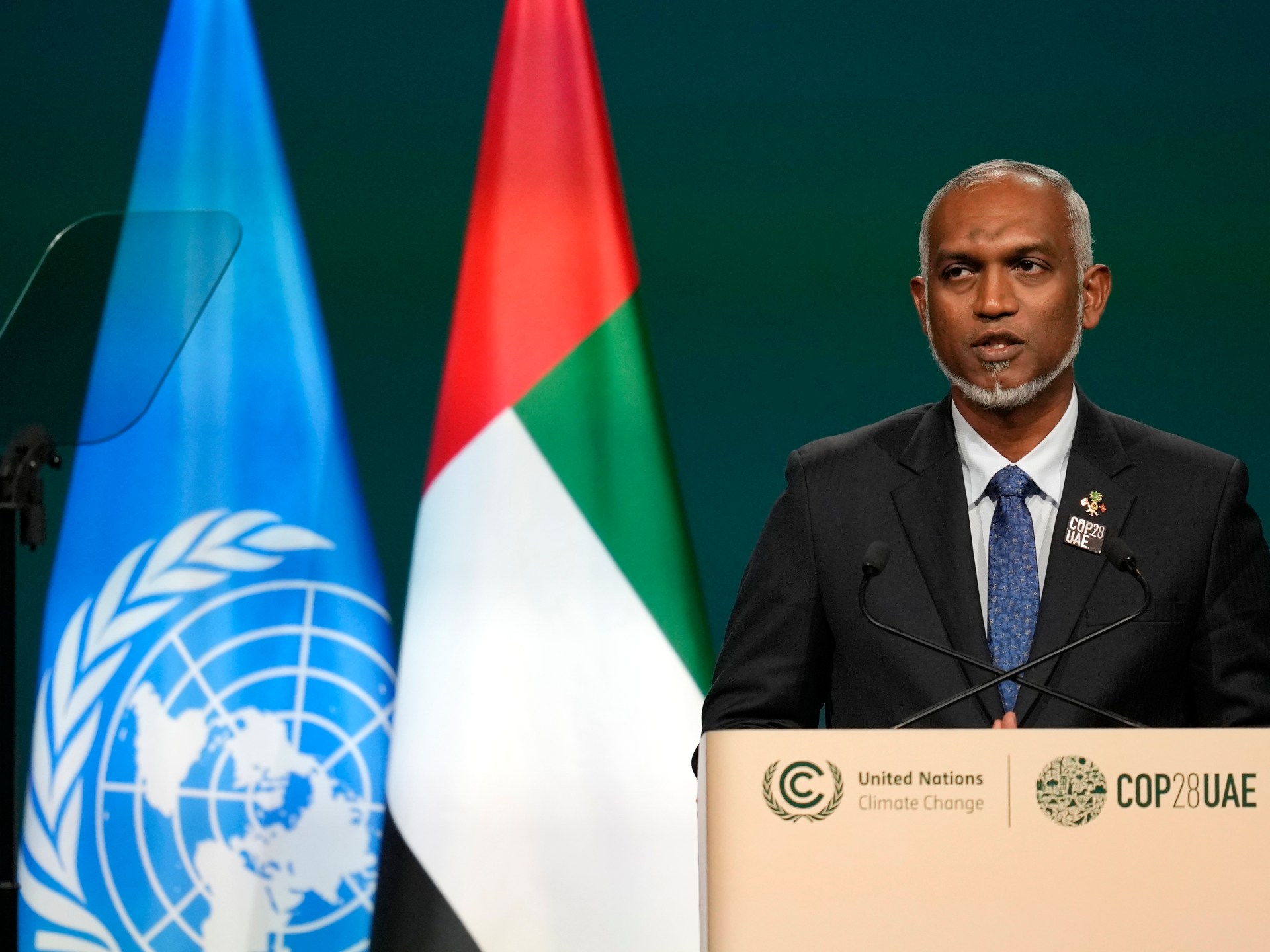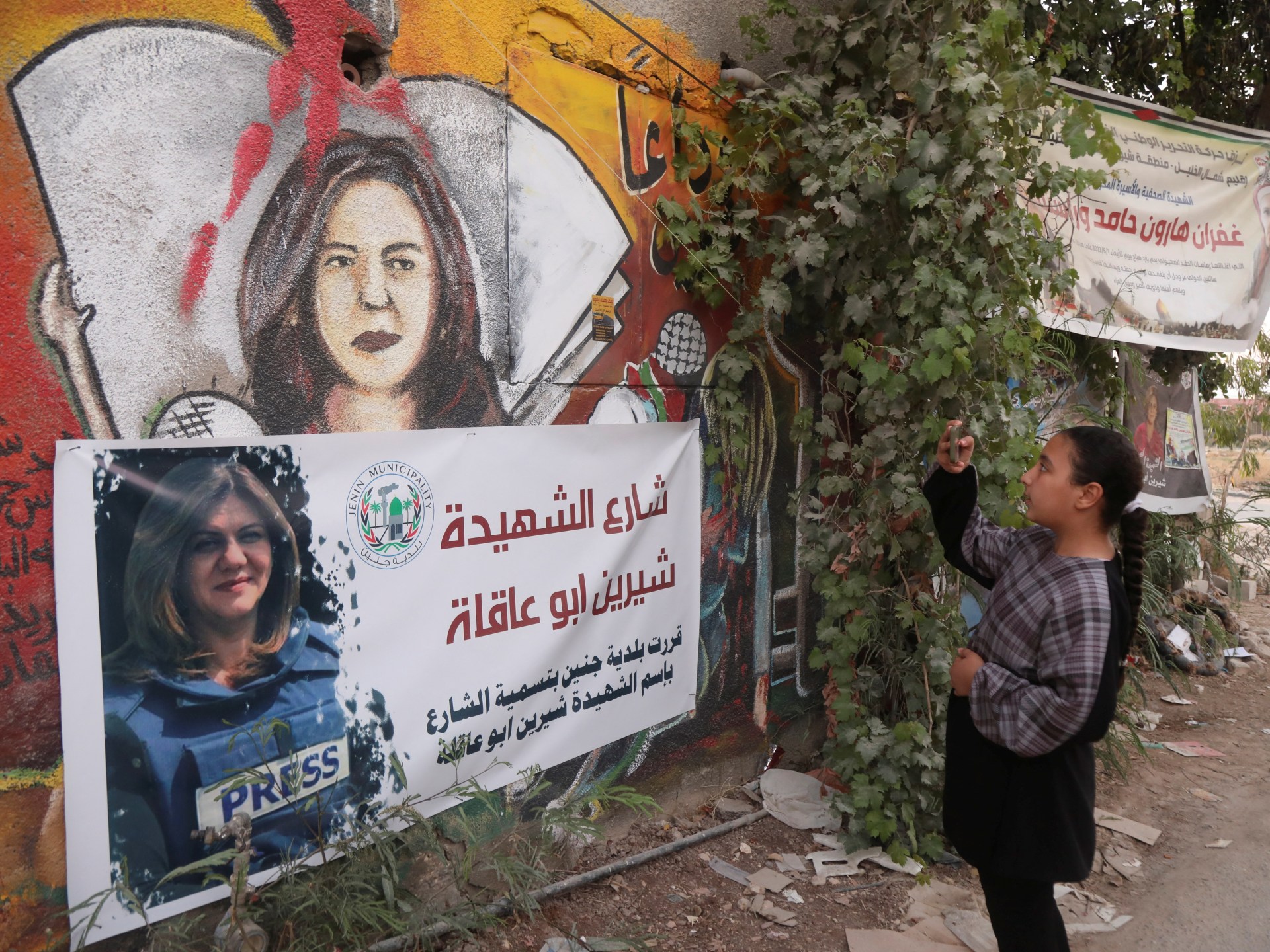‘India out’: Maldives president eyes Middle East partners with early trips | Politics
When the new Maldives president, Mohamed Muizzu, stepped on a plane in late November for his first overseas visit since being sworn in barely a week earlier, he was breaking with a longstanding tradition in his country’s diplomatic practices.
Across party lines, Maldivian presidents have long made India their first port of call after being elected, in a reflection of the South Asian giant’s traditional influence on the idyllic Indian Ocean archipelago.
But Muizzu, who became president after a raucous and divisive anti-India campaign, chose to make his first official trip to Ankara, the capital of Turkey, showcasing an intent to diversify and reorient his country’s foreign policy.
At the heart of Muizzu’s efforts is a search for new friends at a time he has made it clear that he intends to pull away from India, according to analysts and sources within the Maldives.
It “symbolises a considerable reorientation in the Maldives’s foreign relations, moving away from the longstanding view of India as an essential ally and strategic partner in the Indian Ocean region and South Asia”, Mujib Alam, a professor in international relations at New Delhi’s Jamia Millia Islamia university, told Al Jazeera.
Soon after taking office, Muizzu doubled down on a campaign demand that India should withdraw troops from the Maldives. During the election campaign, his Progressive Party of Maldives (PPM) had claimed that India had plans to use the military base that it was building on the island of Uthuruthilafalhu near Male to take over the country.
The party built on an “India out” campaign that has, in recent years, projected New Delhi as a hegemon keen to erode the country’s autonomy. India has rejected that suggestion: It has only 77 soldiers in the Maldives, and that includes those who operate two Dhruv helicopters and Dornier aircraft supplied by India to help reach people on distant islands of the archipelago needing medical assistance.
Maldivian opposition sources, who did not want to be named, claimed Muizzu understands that Indian troops do not really threaten the country’s sovereignty, but managed to touch a nationalist nerve in the nation for political and electoral dividends. His predecessor, Ibrahim Solih, was seen as particularly close to India. By contrast, Muizzu is viewed by many as closer to China: When he was mayor of Male, he oversaw key Beijing-funded infrastructure projects and promised stronger ties with the Chinese Communist Party if he became president.
Yet a visit to China as his first foreign trip could have risked upsetting ties with India — the Maldives’s closest neighbour and leading aid and assistance partner — too far. His choice of Turkey suggests a more nuanced message to India, according to analysts.
Signal to India
While India views China as a national security threat, its formal ties with Turkey are more steady — though increased scarred by tensions.
Turkey has criticised Indian Prime Minister Narendra Modi’s decision to abrogate Indian-administered Kashmir’s semi-autonomous status and has highlighted human rights violations in the region at the United Nations.
Against this backdrop, Muizzu’s visit to Turkey “would not be an easy track” for India to accept, said Anil Trigunayat, a former Indian diplomat who served as ambassador to Libya and Malta.
It is a pointed message to New Delhi, said Professor Alam. “It appears to be a deliberate stance in the context of India-Turkey tensions,” he said.
A Turkish official, who requested anonymity, suggested that Ankara had no interest in stoking tensions between India and the Maldives, but was looking after its own interests.
Under President Recep Tayyip Erdogan, Turkey has looked to expand its geopolitical clout — playing a vital role in negotiations over the Russia-Ukraine war, among other issues — and South Asia has been no exception. In June, Turkey hosted Bangladesh’s president. Last month, Turkish Airlines resumed direct flights to Sri Lanka after a decade. In January 2022, then-Turkish Foreign Minister Mevlut Cavusoglu visited the Maldives and Sri Lanka.
During Muizzu’s visit to Ankara in November, the two countries signed a free trade agreement and committed to strengthening defence ties: Turkey has one of the world’s most advanced defence industries.
Turkey and the Maldives are increasingly also aligned on key geopolitical challenges — they have both strongly criticised Israel’s war on Gaza, while India has been more ambivalent, only recently joining calls for a ceasefire.
Yet, Muizzu’s Turkey visit is ultimately less about Ankara and more about distancing Male from New Delhi, said analysts. After his election but before he was sworn in, Muizzu visited the United Arab Emirates. Muizzu returned to the UAE for a second time, for the COP28 summit. In December, Maldives Vice President Hussain Muhammad Latheef visited China.
For India, this rift with the Maldives is a cause for anxiety — 50 percent of India’s external trade and 80 percent of its energy imports transit through Indian Ocean sea lanes. For Muizzu, the equation appears clear: If he wants India out, he needs others to come in. That, experts said, is what his trips are about.
Check out our Latest News and Follow us at Facebook
Original Source







